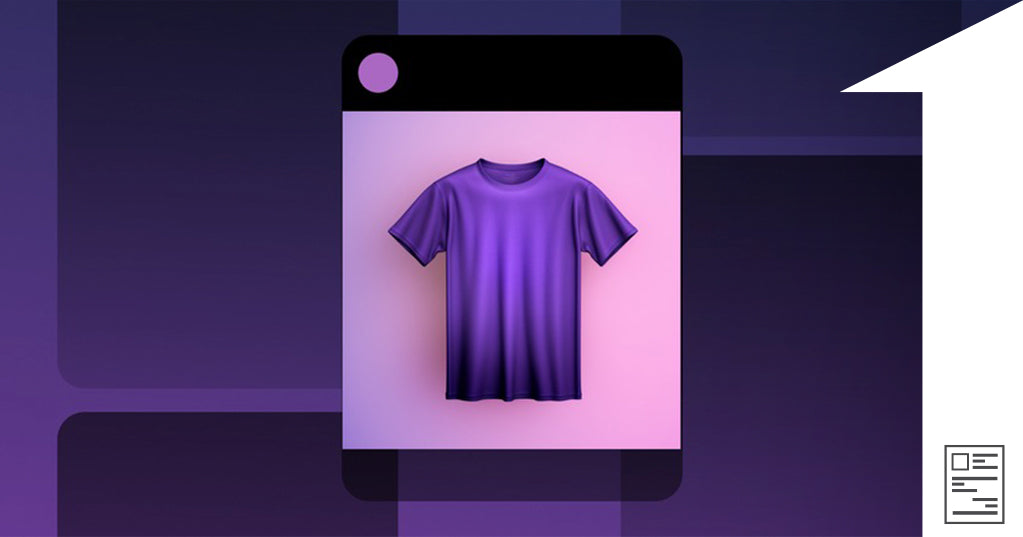Hiring an ecommerce agency is a huge step for any store owner—but it doesn’t have to be a scary one. There are a wide array of options for partners who can help build your app, launch your store, or reach more customers.
If you haven’t hired an ecommerce agency before, though, the process can feel pretty intimidating. Is it worth the investment? Should you hire or outsource? What kind of agency do you even need?
Ahead, find everything you need to know to make your ecommerce agency hire a huge success.
What is an ecommerce agency?
An ecommerce agency is a B2B business that offers a range of professional services intended to help ecommerce companies meet their business goals. Ecommerce agencies can help businesses with digital marketing, content creation, SEO strategy, social media management, and tons more.
Why hire an ecommerce agency
There are major benefits to hiring an ecommerce agency, and the most important is this: As a store owner, you need to focus on running your business without the added stress and task load that comes from tasks that can be easily and expertly handled by an ecommerce agency.
But let’s walk through the other reasons that will make you want to book your first agency consultation meeting.
You’ll get faster results
Hiring an agency is much faster and more efficient than hiring new employees. This is because you need to train a new employee, while agencies are skilled at hitting the ground running. Also, an agency comes with an entire team of strategists ready to help you grow your business.
As an ecommerce business, you need an agency that’s well-versed in working with online stores and can ensure fast results in your industry niche.
For example, footwear brand Jack Rogers hired an ecommerce agency to help it ramp up direct-to-consumer sales. The popular sandal brand had long seen success placing its products in department stores, but was hoping to improve its online sales as well.

Its initial ecommerce platform was clunky and time-consuming, so it brought on Shopify Plus Service Partner P3 Media, an agency with experience migrating ecommerce stores over to Shopify Plus websites.
With this hire, Jack Rogers’ new and improved online store became one of the company’s top distribution channels: traffic increased by 60%, and conversions improved by 30%.
You get access to specialized expertise
By hiring an agency, you get a team of experts well versed in the exact task at hand. While it may seem beneficial to make a single hire that can manage everything, marketers who can specialize provide better results in their area of expertise.
Someone who can specialize in Google Ads is going to have a much better grasp of the subject than someone who does Google Ads alongside ecommerce website management, content marketing, email marketing, and more.
For example, let’s say your online store faces a complex technical issue with your website. Your in-house marketer who has created and implemented your entire marketing strategy and can handle minor website updates likely won’t have the know-how to deal with an in-depth technical problem.
Instead, you can hire an ecommerce agency with web developers who can pinpoint the issue and solve the problem in less than a day’s work—whereas your in-house marketer may need to spend weeks researching, playing around with your website, and pulling out their hair before they’re able to find a solution.
Shopify’s expert marketplace can help you find a service partner specializing in anything from migrations and internationalization to marketing and analytics.

You get an outside perspective
If you’re running out of ideas, hiring an agency can bring a fresh perspective to your store. Agencies work with a wide variety of clients and bring those best practices to your business.
When you’re running your own business, it can be difficult to see other opportunities available to you, other than what you’ve already been doing. Hiring an agency gives you that essential outside perspective that can open you up to new ideas and tactics.
You can save money
Agencies aren’t inexpensive, but they’re often much cheaper than bringing on a full-time employee or team. With an agency, you can bring on the knowledge and experience you need, without the cost and commitment of a full-time employee.
Plus, to have a fully specialized marketing team, you’d need to hire more than just one single person. And that can add up quickly.
Let’s take a look at some going rates for marketers:
- Digital marketer: $39,281 to $133,248, depending on their level of expertise
- Social media manager: $53,221
- Content marketing manager: $76,595
- Email marketing manager: $84,244
- Paid search manager: $89,181
- SEO manager: $86,520
And that doesn’t even include benefits, vacation pay, and company perks, as well as monthly fees for marketing software your team will need access to. If you hire all of the above, you’re looking at an annual cost of nearly $490,000, or more than $40,000 per month.
With an agency—depending on the deliverables you want—you can get access to a full team of experts for anywhere from $2,000 to $15,000 each month, which is far less than you’d pay for the aforementioned in-house team.
Types of ecommerce agencies
Just like marketers specialize in various services, some ecommerce agencies do as well. Many offer full-service marketing options, but there are also different types of ecommerce agencies you might want to hire for something specific.
Ecommerce marketing agencies
An ecommerce marketing agency is typically a digital marketing agency that works solely with ecommerce companies. This specialization in itself is their way of niching down—but everything else they provide helps with any type of marketing campaign across the board.
Brands looking to hire an ecommerce marketing agency typically want to increase brand awareness, grow a bigger online presence, and turn social media followers into customers.
Common services ecommerce marketing companies offer include:
- Digital strategy
- Social media marketing and management
- Content creation
- Search marketing
- Online advertising, like paid social and PPC ads
- Influencer marketing
- Community management
- Conversion rate optimization (CRO)
Ecommerce SEO agencies
An ecommerce SEO agency focuses on generating organic traffic to a website through search engine optimization (SEO). This strategy typically involves creating landing pages and blog content that is keyword optimized in order to help ecommerce brands rank at the top of search engine results.
By hiring an ecommerce SEO agency, you’ll build up the domain authority of your website, increasing your search engine rank and bringing in more website traffic. And more website traffic means more potential customers.
Ecommerce development agencies
An ecommerce web design and development agency helps retail companies create well-oiled online stores through ecommerce platforms like Shopify. Creating the online shopping functionality and ensuring the website is easy to navigate is key for ramping up an ecommerce brand’s sales.
Let’s take a look at this case study, where Shopify Plus Partner agency Able Sense helped transition Stanfield’s website from Magento to Shopify Plus. In doing so, Stanfield’s saw a 168% increase in conversion rate, a 20% growth in average order value (AOV), and a 59% increase in total transactions.

Ecommerce development agencies focus on the user experience, or UX design, to ensure your website works well for your customers. They’ll set up necessary integrations for your payment processor as well as your chosen marketing channels. Many also specialize in graphic design to ensure they can create stunning visuals for your site.
When is the right time to hire an ecommerce agency?
If you’re considering hiring an ecommerce agency, there are some tell-tale signs that you’re ready—either from a decline in your shop’s performance or due to an increase in your day-to-day task load in running your own business.
Let’s walk through some of the top reasons for hiring an ecommerce agency and what they could do to help.
You’re seeing a decline in sales
If you’ve been doing a great job of growing your business by yourself and watching more and more sales come in, but all of a sudden you’re starting to see a decline or stagnation, you might want to enlist outside help.
For an issue like this, you can hire a full-service ecommerce agency that can assist in auditing your website to see if there are any user experience issues, as well as ramping up new marketing campaigns to reach even more customers.
You’re launching a new product
If you’re launching a new product, hiring an agency can be a better way of generating buzz. While your own marketing efforts can likely create a small buzz, enlisting the help of a team of professionals can help make your launch even more successful.
For example, Shopify Plus Partner Slicedbread helped air purifier company Molekule validate its product concept and sell out two pre-launches, results Molekule likely wouldn’t have seen anything close to on its own.

You’re lacking the necessary skills in-house
When you’re first starting, you’re likely one of the only employees—if not the only—which means you might not have the skills to create your own website design, set up your online store, create social media content, and more.
This is where an agency comes in. Once you’ve built up your business enough to have consistent revenue, investing in an ecommerce agency can ramp up your sales, putting even more in your pockets in the long run.
You’re breaking into a new market
Breaking into a new market—whether with a new product launch or as a part of a localization strategy—can be a tough venture. This is why many brands enlist the help of agencies with experience in this type of business growth.
Skin care company The Beauty Chef enlisted the help of Shopify Plus Partner Elephant Room with its globalization strategy. The brand wanted to branch out into US and UK markets, so Elephant Room helped set up and launch the necessary web pages to do so.

You’re running out of time to handle things yourself
Running an online business takes up a lot of time—even more so if you’re hand-making the products you sell. As the business owner, you have a lot of other tasks on your plate, from order fulfillment and updating product listings to accounting and customer service.
If you’re finding yourself struggling to remember to post on social media or write blog content, you might want to outsource these tasks to an agency. This way, you’re able to focus on running your business while the agency handles your marketing strategy.
You don’t enjoy marketing
If you hate marketing, don’t force it. Market just enough to get your business off the ground, then immediately outsource it. Finding an agency partner can be a long-lasting working relationship that helps exponentially grow your business—and you don't have to lift a finger.
How to select the best ecommerce agency for your store
Now that you know why and when you’d consider hiring an ecommerce agency for your store, let’s focus on the next big question. How do you find the right fit? Let’s walk through our step-by-step guide for ensuring you hire the agency that can take your business to the next level.
1. Determine what you need
What are your goals?
Goals could include:
- Increasing monthly sales
- Increasing traffic to your ecommerce store
- Improving the user experience on your website
- Launching a new product
- Increasing brand awareness
- Generating more online followers
Make sure your agency’s goals align with your overall business goals.
The next step is to do some preliminary research about the work. For example, you can find instances of other businesses doing something similar to what you want. This can help your agency to better assist you, because it gives it a clear example of what you’re looking to achieve.
Once you have that information, it’s time to clearly define your budget, timeline, and the desired results. The more specific, the better. Having this information will make sure you weed out any agencies that are out of your budget, have a waiting list, or aren’t able to show proven results similar to what you’re looking for.
2. Consider your budget
Budget is crucial when hiring an ecommerce agency because they don’t come cheap. You need to be at a point in your business where you’re comfortable spending several thousand dollars per month to hire an agency.
So your first step is to work out how much you’re willing to spend, and how quickly you want to see results. Different factors will affect your budget, like timelines, the scope of work, and the overall complexity of the project, but keep in mind that many agencies can adjust their engagement to meet your budget.
3. Find the right fit
Now it’s time to start looking for agencies that offer the type of help you’re looking for. First, start by browsing through Shopify’s partner list—with agencies hand-picked for their deep knowledge and successful track record—to find someone that you know you can work with or who can migrate you to a Shopify website.

Once you find a few options by filtering results based on the services you’re looking for, it’s time to start scouting their websites. Look through past work and reviews to see if any agencies have shared case studies and proven results with businesses similar to yours. Or you can create a job and connect with qualified and award-winning agencies based on your specifications.
Look past technical expertise, as well. A few other things to consider before choosing your agency include:
- Assess cultural and personal fit: Make sure your chosen agency takes the time to listen to your needs.
- Assess location: How easy will it be to collaborate with your chosen agency?
- Assess their track record: Have they worked with stores like yours?
Once you’ve pinpointed a small handful of agencies you’re most interested in, it’s time to get in touch and start vetting them directly.
4. Interview your chosen agency
Reach out to your chosen agency or agencies via their website’s contact form. Most ecommerce agencies offer a free consultation or initial meeting so the two of you can learn more about each other and how a partnership might look.
During this meeting, you have the chance to interview your agency. Their goal is to make the sale, but you want to be sure it’s going to be a good fit.
Bring along some of these questions to help gauge whether the agency you’re chatting with is the best one for the job:
- Who (if anyone) are you working with/have you worked with in my industry? What did you do for them and what were the results?
- Who will be working on my account? How does communication with that team member work? How often do we meet or have planning discussions?
- Is the work all done in-house or do you outsource to freelancers or contractors? How do you decide which freelancers to work with and what is their experience level?
- What does the onboarding process look like?
- What will be expected of me and my team as a client?
- What does your workflow look like? How will we be informed of the results?
- When was the last time you lost a client? What happened?
Add anything else that you’re curious about to your list and go to any meetings prepared so you can get the most out of your agency-client relationship.
5. Review (and accept) their proposal
Once you’ve had your initial consultation, the agency will put together a proposal based on the services you’re interested in.
The reason why your first meeting with an agency is so important is to ensure the proposal they provide you with accurately represents the type of work you’re looking to have them do, minimizing miscommunication and the need to go back and forth before putting together the right information.
Review the proposal they send over to make sure it matches your goals and your budget.
6. Make the hire
After the proposal, you should be sent a contract to sign and kick off the project! Once that part is done, the agency will get you started with its onboarding process, ensuring it has all the information it needs.
Your next step is to sit back and let the agency begin its work. Stay on top of communication so it’s able to get anything it needs from you, and make sure to keep an eye on results so you know the agency’s strategies are working.
But the biggest thing is that you can now focus fully on running your business and getting your day-to-day tasks done without having to worry about marketing.
Don’t rush the process
Hiring the right ecommerce agency is a big decision. Use the tools available to choose the right one, ask lots of questions, and don’t be afraid to take your time. Working with an agency can be a great decision, helping ramp up ecommerce growth and exponentially increase your reach and customer base.
https://www.shopify.com/uk/blog/ecommerce-agency
by Chloe West













